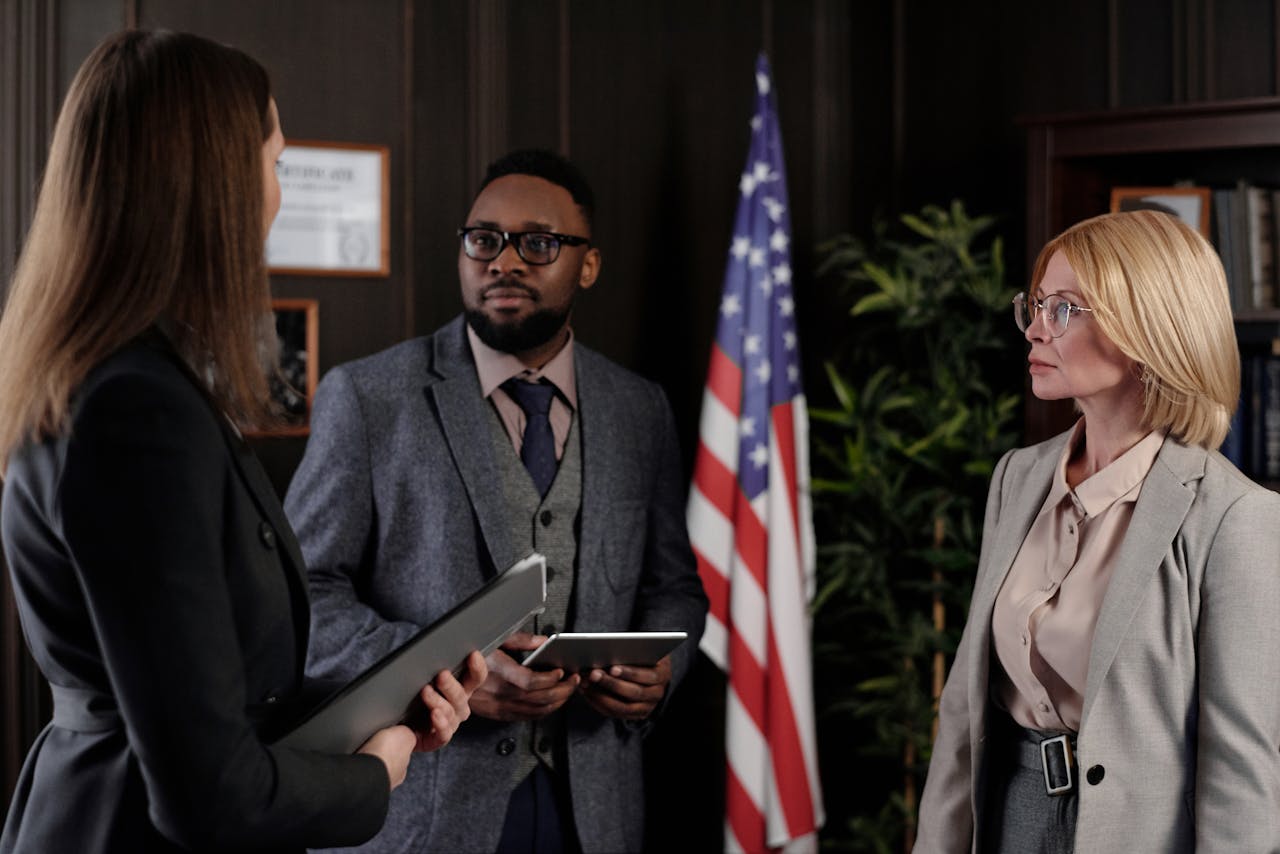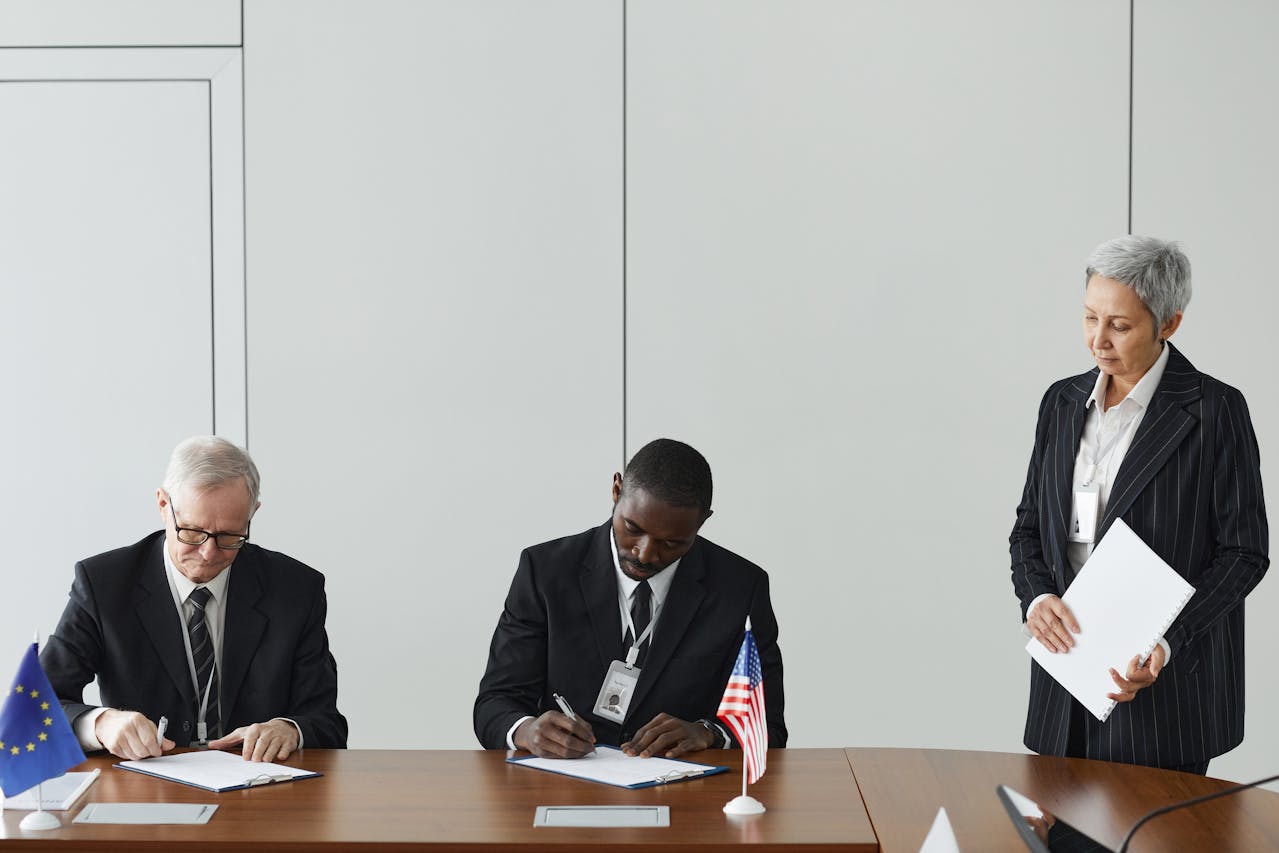Diplomat and Foreign Service Officer Training Course
| Date | Format | Duration | Fees (GBP) | Register |
|---|---|---|---|---|
| 03 Nov - 21 Nov, 2025 | Live Online | 15 Days | £7850 | Register → |
| 01 Dec - 03 Dec, 2025 | Live Online | 3 Days | £1725 | Register → |
| 26 Jan - 03 Feb, 2026 | Live Online | 7 Days | £3325 | Register → |
| 04 Mar - 06 Mar, 2026 | Live Online | 3 Days | £1725 | Register → |
| 13 Apr - 17 Apr, 2026 | Live Online | 5 Days | £2525 | Register → |
| 04 May - 22 May, 2026 | Live Online | 15 Days | £7850 | Register → |
| 31 Aug - 04 Sep, 2026 | Live Online | 5 Days | £2525 | Register → |
| 02 Nov - 20 Nov, 2026 | Live Online | 15 Days | £7850 | Register → |
| 02 Dec - 04 Dec, 2026 | Live Online | 3 Days | £1725 | Register → |
| Date | Venue | Duration | Fees (GBP) | Register |
|---|---|---|---|---|
| 17 Nov - 05 Dec, 2025 | Singapore | 15 Days | £10400 | Register → |
| 15 Dec - 19 Dec, 2025 | Houston | 5 Days | £4950 | Register → |
| 26 Jan - 30 Jan, 2026 | New York | 5 Days | £4950 | Register → |
| 27 Apr - 01 May, 2026 | Baku | 5 Days | £4050 | Register → |
| 25 May - 27 May, 2026 | Nairobi | 3 Days | £3325 | Register → |
| 31 Aug - 04 Sep, 2026 | Barcelona | 5 Days | £4450 | Register → |
| 09 Nov - 27 Nov, 2026 | Singapore | 15 Days | £10400 | Register → |
| 14 Dec - 18 Dec, 2026 | Houston | 5 Days | £4950 | Register → |
Did you know that foreign service officers can retire with generous pensions at age 50 after 20 years of service, with language incentive pay up to 15% of base salary, while UK Fast Stream graduates earn £28,000-£55,000 within five years? These compelling statistics underscore the critical need for advanced diplomatic expertise.
Course Overview
The Diplomat and Foreign Service Officer Training Course by Rcademy is meticulously designed to equip professionals with essential skills needed for effective diplomatic service. This comprehensive program delves into advanced international relations methodologies, providing participants with a robust understanding of how to navigate complex global challenges while representing national interests effectively.
Without specialized diplomatic training, professionals may struggle to maintain international effectiveness and career advancement. Studies show that institutions lacking structured diplomatic protocols experience reduced international outcomes and lower promotion rates.
Why Select This Training Course?
In a rapidly changing international landscape, diplomats and foreign service officers are required to possess advanced skills for navigating complex challenges such as global security, economic diplomacy, cross-cultural negotiations, and crisis management. Comprehensive training in these areas equips professionals to represent their nations effectively, build critical relationships, and maintain the flexibility needed to respond to evolving global situations.
Research shows that organizations with well-trained diplomatic personnel consistently achieve enhanced international outcomes, including more effective negotiations, stronger network-building, and greater national influence in international forums. For instance, the UK’s Fast Stream diplomatic program has demonstrated the value of structured training by producing leaders who handle international challenges and protect national interests with distinction.
Studies highlight that individuals who complete robust diplomatic training programs benefit from accelerated career advancement, generous pension and leadership opportunities, and cultural enrichment through multilingual and cross-border assignments. Programs such as those conducted by the U.S. State Department offer specific benefits like early retirement options, language incentive pay, and diverse professional development experiences that enhance both personal and professional growth.
Take the next step in shaping your future. Enroll today to position yourself as a leader in global diplomacy and advance your international career.
Who Should Attend?
The Rcademy Diplomat and Foreign Service Officer Training Course are essential for persons involved in international service, especially those on diplomatic missions. The following individuals should participate in this training course:
- Diplomats tasked with maintaining good relations between states, representing the interests of their nations, and gathering and preparing reports on information that affects their country’s interest
- Public diplomacy officers are charged with influencing public opinions on vital issues, working with non-governmental bodies and research agencies to promote understanding and support for policy goals
- Economic officers are employed to work with foreign governments and agencies on various matters ranging from economics and trade to science and technology
- Policymakers engaged in formulating public policies and legislation
- Ministerial Committee responsible for procuring and disposing of public assets on behalf of a government
- Protocol officers charged with rendering professional assistance during visits of dignitaries/officials
- The Consular officers are tasked with issuing visas to citizens, assisting citizens in foreign countries, and evacuating them in cases of emergency
- Management officers involved in budgeting and human resource management in ensuring the smooth and effective running of the consulate or embassy
- Political officers are charged with maintaining relations with government officers at different levels to identify potential political challenges
- Government Relations Officer is responsible for providing professional publicity strategies and maintaining a constructive relationship with relevant stakeholders on behalf of the government
- Public Affairs Officers are charged with planning and implementing public operations and also guiding policymakers on decisions that affect mission success
- Individuals interested in learning about the roles and responsibilities of diplomats and foreign service officers
What are the Training Goals?
The Rcademy Diplomat and Foreign Service Officer Training Course is specially developed to assist participants in achieving the following objectives:
- Understand the principle and practice of international diplomacy and relations
- Learn how to monitor and evaluate international events
- Understand how to create policies and strategies that advance the interests of their country
- Identify the various methods used in promoting overseas relations and investments
- Learn how to manage press relations and media interactions
- Understand how to render consular and diplomatic services to citizens abroad
- Learn how to draft official reports and documents
- Identify international protocols and how they are applied in formal settings
- Learn how to handle queries
- Understand the visa issuance process
- Develop crisis management and emergency response skills for diplomatic missions
- Strengthen cross-cultural and multilingual communication abilities in international contexts
- Master negotiation and mediation techniques for conflict resolution between states
- Gain competency in digital diplomacy, cybersecurity, and the use of technology in international communications
- Build effective stakeholder engagement strategies with intergovernmental, non-governmental, and multilateral organizations
- Understand ethical standards, professional integrity, and anti-corruption measures in diplomatic practice
- Enhance skills in managing international projects, aid programs, or humanitarian efforts
- Apply performance measurement and reporting techniques to evaluate diplomatic mission outcomes
How Will This Training Course Be Presented?
At Rcademy, the extensive focus is laid on the relevance of the training content to the audience. Thus, content is reviewed and customised as per the professional backgrounds of the audience.
The training framework includes:
- Expert-led lectures delivered by experienced diplomatic professionals using audio-visual presentations
- Interactive practical training ensured through sample assignments or projects and role-plays that simulate real diplomatic scenarios
- Trainee participation encouraged through hands-on activities that reinforce theoretical concepts
- Case studies featuring real-world diplomatic challenges and solutions from various international missions
- Best practice sharing sessions where participants discuss experiences and learn from peers
The theoretical part of training is delivered by an experienced professional from the relevant domain, using audio-visual presentations. This immersive approach fosters practical skill development and real-world application of diplomatic principles through comprehensive coverage of international relations, protocol management, and crisis response.
This theoretical-cum-practical model ensures participants gain both foundational knowledge and practical skills needed for effective diplomatic service and foreign relations management.
Register now to experience a truly engaging, participant-focused learning journey designed to equip you for success in diplomacy.
Course Syllabus
Module 1: Overview and Introduction to International Relations
- Definition of terms
- The theories of international relations
- Actors in international relations
- Maps of international relations
- International Society
- The Role of NGOs in international relations
- International Relations and foreign policy
- The framework for evaluating international relations
Module 2: Overview of the Roles and Responsibilities of Foreign Service Officers
- Definition of term
- Types of foreign service officers
- The duties of foreign service officers
- Relationship between diplomacy and foreign service officers
- Job Requirements
- Essential Skills of foreign service officers
Module 3: The Diplomatic Function
- Brief History of international diplomacy
- The structure of the diplomatic mission
- The Vienna Convention of 1961
- The regime of diplomatic service
- Functions of diplomatic mission
- Diplomatic officials
Module 4: Embassy Management
- Living abroad
- Project management for diplomats
- Consular activities
- Diplomatic rights and privileges
- Role of Spouses in Diplomacy
- International negotiation
- Managing media and press relations
Module 5: Communication and Public Engagement
- Networking and advocacy
- Adopting effective communication strategies
- Etiquette, hosting skills, and entertainment
- Effective public speaking skills
- Adopting intercultural relations
- Presentation skills
Module 6: Diplomacy and Soft Power
- Methods for organizing international meetings
- Setting meals and dinners
- Diplomatic conversation skills
- Contemporary and traditional best practices
- Verbal and non-verbal cross-cultural communications
Module 7: Foreign Service Etiquette
- Royal protocols
- Flag etiquette
- Anthems
- Cultural diplomacy through the media
- Maintaining a professional image
- Formal and informal dress codes
Module 8: Diplomatic and Political Means
- Parallel diplomacy
- Diplomatic means
- Traditional and contemporary diplomacy
- Complementary forms of diplomacy
- Public diplomacy and the media
- Country image and diplomacy
- Emerging forms of diplomacy
Module 9: Diplomacy and International Law
- Intelligence and diplomacy
- The United Nations system of multilateral diplomacy
- Security policy
- The challenge of enforcement in diplomacy
- Diplomacy and international human rights
Module 10: The Consular Function
- consulates
- Accreditation
- Consular accounting
- Consular offices
- Consular management
- Honorary consular officials
- Notarial functions
- Promotional consular functions
- Records and inventories of consular offices
Training Impact
The impact of Diplomat and Foreign Service Officer training is evident across globally recognized diplomatic services:
U.S. Department of State Leadership Pipeline and Crisis Readiness (Global)
Implementation: The U.S. Department of State’s rigorous Professional Development Program ensures diplomats progress through structured regional postings, language immersion, and real-world crisis management. Diplomatic trainees master operational effectiveness, leadership, intercultural negotiation, and rapid response to global crises, culminating in accelerated promotion into Senior Foreign Service roles.
Results: The program yields higher foreign service retention, accelerated ambassadorial appointments, and proven crisis management leadership, with officers demonstrating fast advancement, multilingual proficiency, and unmatched negotiation skill showcasing how systematic diplomatic training creates globally agile, highly effective international representatives.
UK Fast Stream Diplomatic Service Global Policy Influence and Professional Advancement (UK and Overseas)
Implementation: The UK’s structured Fast Stream Diplomatic program offers a five-year rotational system integrating policy development, operational practice, and overseas experience. Through formal mentorship, language training, and practical tradecraft education, diplomatic officers are equipped to represent the UK’s interests in multilateral settings and build critical international partnerships.
Results: Graduates secure rapid career progression, earning £28,000–£55,000 within five years, and are selected for demanding hardship posts worldwide. UK diplomats report enhanced public diplomacy influence, policy leadership, and operational resilience, demonstrating how targeted training drives impactful global representation and sustained national prestige.
Be inspired by the world’s best diplomatic organizations. Secure your spot in the Rcademy Diplomat and Foreign Service Officer Training Course and unlock your diplomatic potential today.







